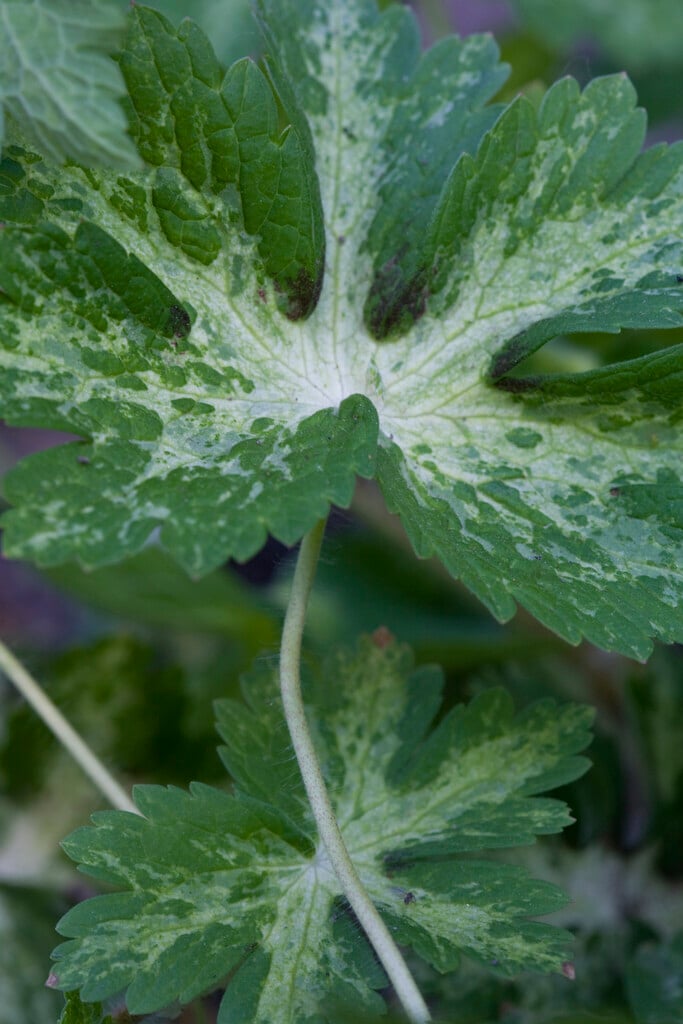Geranium phaeum 'Lisa' (v)
dusky cranesbill 'Lisa'
A reasonably compact, deciduous, herbaceous perennial, producing deeply lobed, bright green leaves marbled in light green, on stems to 70cm (28in) high. Single slightly reflexed smokey purple flowers appear in spring. While best in sun to partial shade, it is also able to tolerate full shade, making it useful for using in the shady border

Buy this plant
Size
Ultimate height
0.5–1 metresTime to ultimate height
2–5 yearsUltimate spread
0.1–0.5 metresGrowing conditions
Moisture
Moist but well–drained, Well–drainedpH
Acid, Alkaline, NeutralColour & scent
| Stem | Flower | Foliage | Fruit | |
| Spring | Purple | Green | ||
|---|---|---|---|---|
| Summer | Green | |||
| Autumn | Green | |||
| Winter |
Position
- Full shade
- Full sun
- Partial shade
Aspect
South–facing or West–facing or East–facing or North–facing
Exposure
Sheltered Hardiness
H7Botanical details
- Family
- Geraniaceae
- Native to GB / Ireland
- No
- Foliage
- Deciduous
- Habit
- Clump forming
- Genus
Geranium can be annuals, biennials and perennials, herbaceous or evergreen, with rounded, usually palmately lobed or divided leaves, and lax inflorescences of rounded, 5-petalled flowers
- Name status
Accepted
How to grow
Cultivation
Grow in moderately fertile, well-drained soil in sun or part shade but most soils (unless waterlogged) are tolerated. Especially good in damp shade
Propagation
Propagate by division in spring or propagate by basal cuttings in early to mid spring and root with bottom heat.
Suggested planting locations and garden types
- Cottage and informal garden
- City and courtyard gardens
- Wildlife gardens
- Banks and slopes
- Flower borders and beds
- Underplanting of roses and shrubs
Pruning
Cut back after flowering to encourage the production of fresh leaves and flowers. Remove old dead foliage in spring before growth commences
Pests
May be susceptible to vine weevil, geranium sawfly, slugs and snails
Diseases
May be susceptible to Powdery mildews, downy mildews and a virus
Love gardening
Sign up to receive regular gardening tips, inspiration, offers and more
View our Privacy Policy
Get involved
The Royal Horticultural Society is the UK’s leading gardening charity. We aim to enrich everyone’s life through plants, and make the UK a greener and more beautiful place.